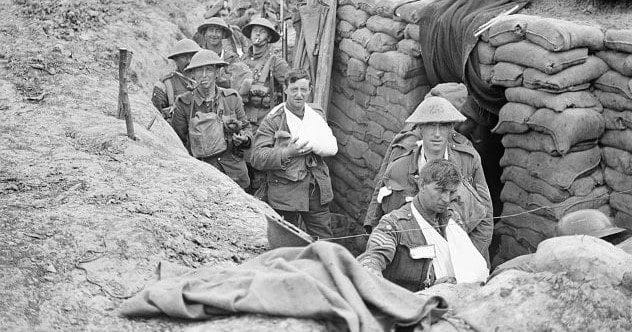Reading is a fantastic avenue for discovery, but the phrase “educational reading” often conjures images of dense, uninviting textbooks. Learning through books doesn’t have to be a chore. The historical fiction genre offers fictional narratives set in real historical periods, frequently featuring actual historical figures.
When skillfully written, these stories are not only immensely enjoyable but also surprisingly educational. They immerse readers in past eras, offering a vivid glimpse into the lives and environments of people long gone. This list features the best historical fiction novels—engrossing tales that will leave you both captivated and enlightened.
The Given Day – Dennis Lehane (2008)
Dennis Lehane, a Boston native, is celebrated for his detective stories set in his hometown, some of which, like Gone Baby Gone and Mystic River, have been adapted into successful films. In The Given Day, Lehane ventures into new territory by exploring a different period. The novel transports us to Boston shortly after World War I—a rarely examined and turbulent time in history.
The narrative unfolds through the eyes of an Irish-American police family navigating the complexities of Boston in 1919. Real historical occurrences, such as the influenza pandemic, racial tensions, political maneuvering by the city’s government, growing fears of socialism, and the infamous Boston police strike, form the backdrop of this highly engaging story. Several historical figures make brief appearances. Lehane’s writing is consistently accessible, and The Given Day offers substantial educational value.
Black Cross – Greg Iles (1995)
World War II provides a compelling backdrop for historical fiction. While we know the war’s outcome, lingering questions remain on the reasons behind pivotal decisions. One such enigma is why Hitler never employed chemical warfare, despite the Nazi invention of the deadly nerve agent sarin. Had it been used on the battlefield, millions could have perished, drastically altering history. Greg Iles skillfully explores this topic in Black Cross.
Iles masterfully blends fact and fiction into a compelling narrative that will immediately grab the reader’s attention. It tells the story of scientist and pacifist Mark McConnell and Zionist terrorist Jonas Stern as they undertake a secret mission behind enemy lines. Their goal is to dissuade the Nazis from using their extensive sarin reserves. Though fictional, Iles presents events in such a plausible manner that one is left contemplating a possible explanation for one of history’s great mysteries.
Wolf Hall – Hilary Mantel (2009)
History can often leave us with fixed views of good and evil, heroes and villains. Thomas Cromwell, chief minister to Henry VIII, is usually seen as one of the villains of 16th-century England. He is often blamed for orchestrating Thomas More’s execution, dissolving the monasteries, and arranging the king’s marriage to Anne Boleyn. However, in her award-winning 2009 novel Wolf Hall, Hilary Mantel challenges this view, portraying Cromwell as an unlikely hero.
Mantel expertly handles this challenging task, delving into Cromwell’s difficult childhood and his deep affection for his family and faith, which gives him a relatable human dimension. Mantel’s extensive research provides a strong sense of historical accuracy, detailing significant events that made Henry VIII one of the most famous monarchs of his time. Readers who enjoy this book will be pleased to know that Wolf Hall is the first in a trilogy, with the subsequent books being just as captivating.
Spartacus: The Gladiator – Ben Kane (2012)
Most people know the name Spartacus, the Thracian gladiator who brought the mighty Roman Republic to its knees during the Third Servile War (73–71 BC). This legendary figure inspired the likes of Karl Marx and Che Guevara and has been immortalized on screen. These portrayals often take liberties with the facts, as little was written about Spartacus historically. Fortunately, Ben Kane, an expert on ancient Rome, adheres closely to the historical record in Spartacus: The Gladiator.
Kane recounts Spartacus’s time as a slave, his escape, and the events that followed, including how Spartacus raised an army and defeated entire legions and consular armies. For details lost to history, such as Spartacus’s life before captivity and details of his epic campaign, the author recreates plausible scenarios in this thrilling tale, the first in a two-part series.
Company of Liars – Karen Maitland (2008)
Karen Maitland is a master of gripping historical fiction, and Company of Liars is one of her most beloved novels. Set in England in 1347, the Black Death has caused widespread panic. Against this grim backdrop, nine individuals unite to escape the plague, but each harbors secrets. As each character’s story unfolds, the plot thickens.
Maitland perfectly captures the atmosphere of the period. The story is haunting, atmospheric, and full of intrigue. The focus is not solely on historical details but rather on the characters and the chilling narrative, complete with horror elements and a shocking twist ending. Company of Liars represents historical fiction at its finest and is a must-read for fans of the genre.
Birdsong – Sebastian Faulks (1993)
War is hell. Everyone knows this, and Sebastian Faulks’s World War I novel, Birdsong, powerfully drives this home. Less publicized than later conflicts, World War I was full of carnage and bloodshed. Faulks brings this dark era to life with his detached depiction of death and destruction, giving readers the sense that death is commonplace and could befall any character at any moment.
The story is not only about loss and tragedy. Interspersed with scenes of gore, we glimpse soldiers’ domestic lives, and the central theme revolves around the lead character, Stephen Wraysford’s secret love affair with Isabelle. Rich with atmosphere, the read is gripping, exhilarating, and heartbreaking, transporting the audience to the bloody trenches of the Somme and the perilous tunnels men risked their lives for.
The Alice Network – Kate Quinn (2017)
Kate Quinn specializes in historical fiction, and her excellent stories are thoroughly researched and based on recorded facts. The Alice Network is inspired by the true story of a group of female spies operating in occupied France during World War I. The book begins in 1947, focusing on Charlie St. Clair, an American socialite who travels to France to find her cousin who disappeared during the Nazi occupation.
Charlie meets Eve Gardiner, who joins her quest and reveals her past as a spy in WWI as part of the historical Alice Network. Spanning two wars and seamlessly switching between past and present, Quinn captivates the reader in this excellent narrative. Quinn has solidified her place in the genre with three additional novels in a similar style.
The Terror – Dan Simmons (2007)
Dan Simmons refuses to be confined to a single genre, and has written an impressive array of novels, from science fiction to crime and horror. In an unusual move, The Terror combines historical fact with heart-pounding horror. Simmons commendably pulls off this ambitious project.
Franklin’s fateful voyage to discover the Northwest Passage in 1845 ended tragically when both vessels, The Terror and The Erebus, became trapped in polar ice, forcing the crews to abandon ship. The fate of the crew remains a mystery. Simmons weaves a chilling tale of evil, both human and otherworldly.
Each chapter is told from the perspective of several key characters, some of whom were actual historical figures on the expedition, immersing the reader thoroughly in the narrative. The lengthy tale packs a punch on every page and is incredibly frightening.
Fall of Giants – Ken Follett (2010)
The first book in The Century Trilogy, Fall of Giants is a true masterpiece by one of the greatest historical fiction authors, Ken Follett. Rather than creating a story based in a historical setting, Follett expertly blends historical fact with a fictional tale in which the characters experience, influence, and are shaped by real-world events.
Fall of Giants meticulously details the lead-up to World War One, the conflict itself, and the years that followed. Follett’s research is so comprehensive and the facts so faithfully reproduced that the novel could easily serve as a textbook for this period in history. But it’s far from a boring slog; it’s a breathtaking tale brought to life by one of the best in the field.
New York – Edward Rutherfurd (2009)
New York, Edward Rutherfurd’s epic historical fiction novel, focuses not on characters but on a place—the city of New York. While there are characters, spanning generations, the story explores the essence of this great city as it evolves and is shaped by world events.
Beginning in the 17th century, when Manhattan was a Dutch colony, and ending with the 9/11 terror attacks, the story encompasses the Revolution, Civil War, the Industrial Revolution, the Depression, and numerous other events that shaped the city’s development.
Each generation of characters is vividly portrayed against the historical backdrop, and Rutherfurd sprinkles countless little-known facts about both time and place throughout the novel. New York is breathtaking in both its scope and depth, making it a perfect historical fiction novel for both educational and entertainment purposes.










